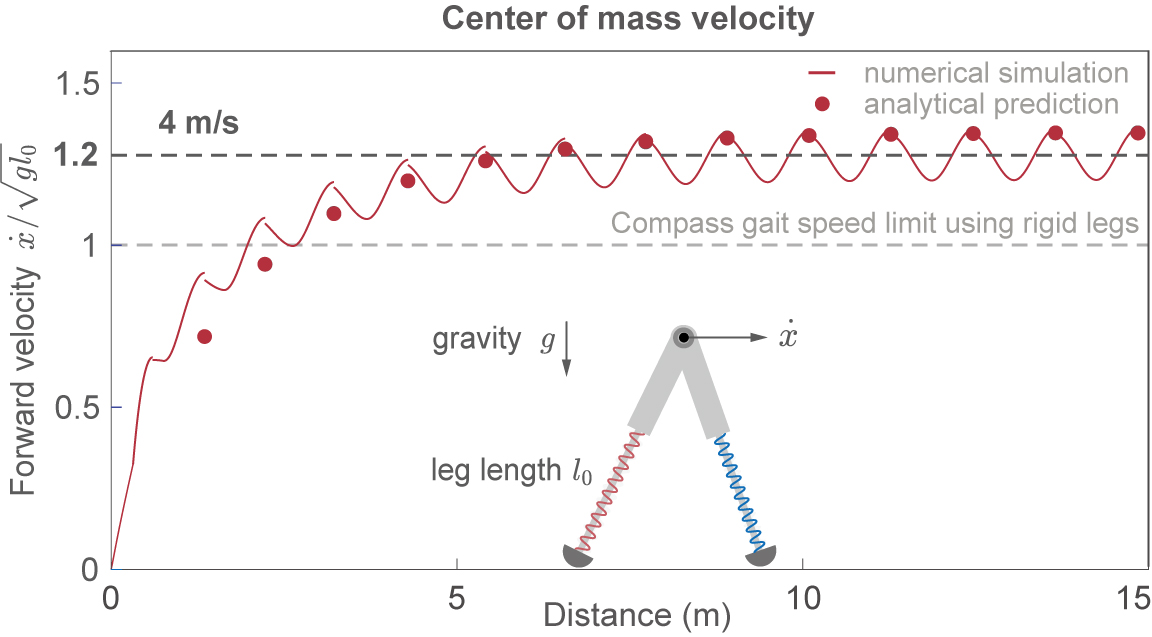T. Zhang and D.J. Braun, Theory of Fast Walking With Human-Driven Load-Carrying Robot Exoskeletons, Transactions on Neural Systems and Rehabilitation Engineering, vol. 30, pp. 1971-1981, 2022.
Reaching and maintaining high walking speeds is challenging for a human when carrying extra weight, such as walking with a heavy backpack. Robotic limbs can support a heavy backpack when standing still, but accelerating a backpack within a couple of steps to race-walking speeds requires limb force and energy beyond natural human ability. Here, we conceive a human-driven robot exoskeleton that could accelerate a heavy backpack faster and maintain top speeds higher than what the human alone can when not carrying a backpack. The key components of the exoskeleton are the mechanically adaptive but energetically passive spring limbs. We show that by optimally adapting the stiffness of the limbs, the robot can achieve near-horizontal center of mass motion to emulate the load-bearing mechanics of the bicycle. We find that such an exoskeleton could enable the human to accelerate one extra body weight up to top race-walking speeds in ten steps. Our finding predicts that human-driven mechanically adaptive robot exoskeletons could extend human weight-bearing and fast-walking ability without using external energy.

